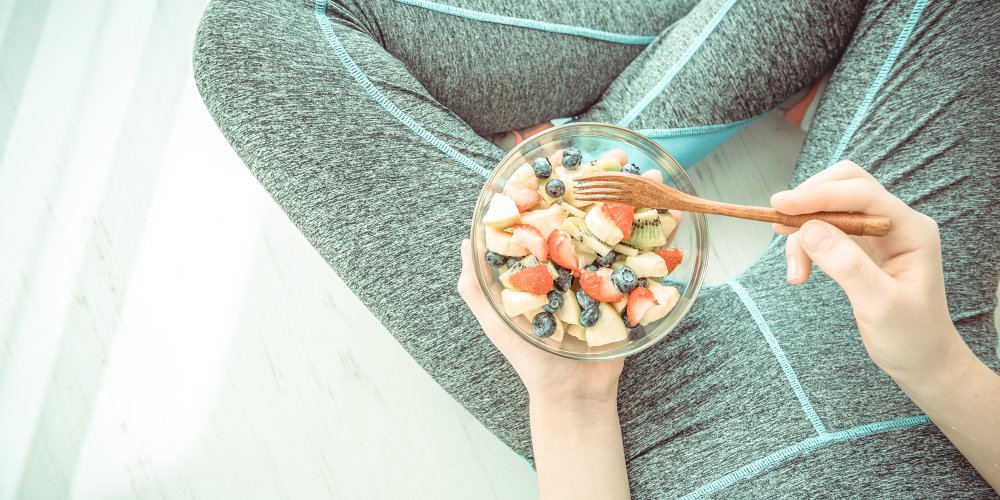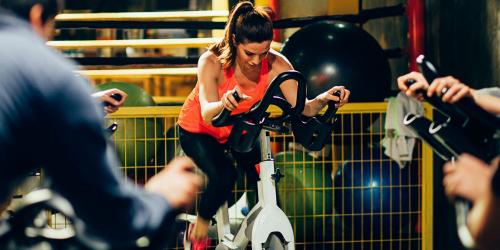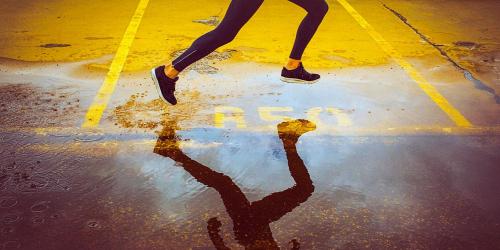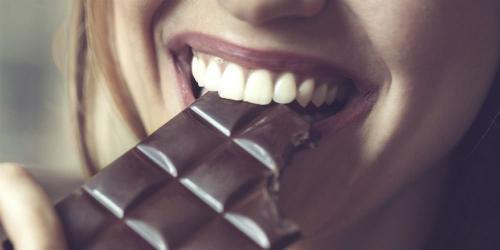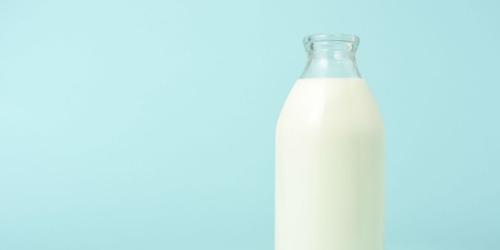Want to treat your diet to better manage the effort and optimize your training? Running, swimming, tennis, fitness ... "the plate is modulated according to the type of practice, but also the frequency of the sessions and their degree of intensity," says Nicolas Aubineau, Mr. diet sports par excellence.
After the books Athlete Food and Running Food (2016), the dietician nutritionist of sport publishes this spring Marathon Food and Trail, Coaching Nutrition (all at Editions Mango). Its recipe: first, to install a healthy and regular food, segundo, to adapt it by keys to your practice. To your menus!
Carbohydrates, the fuel of athletes
Golden rule of any sportswoman, even casual: favor the share of complex carbohydrates on his plate. The goal: "the muscles have to have enough glycogen (the sugar stored in the muscle fibers) on the day of the day to work" explains Nicolas Aubineau. Now, the body takes between two and three days to build up complete reserves of glycogen.
Your menus will have to integrate, day by day, ideally for breakfast and lunch, cereals (rice, quinoa, millet, polenta ...) or bread.
Drink to hydrate and overcome muscle fatigue
Another essential precaution: good hydration. "It minimizes mineral losses, delays the onset of muscle and nerve fatigue, while decreasing muscle damage. Finally, plan for quality protein at dinner. White and lean meats (chicken, turkey, turkey, veal) are more digestible. Better yet: lean fish, whose fibers are shorter are very well assimilated (hake, monkfish, skate, lean, bar ...).
The dietician of the sport advises to associate them with vegetables, for their contributions in fibers but especially their alkalinizing virtues: "it is about absorbing the excess of acidity engendered by the muscular effort and the catch of meat protein. »One increases his rations when the effort is intensified or the practice time lengthened. Once the good bases are adopted, place to the specific strategies, according to the sports.
Swimming: the right diet
Water sports in general and swimming in particular are sports called "worn" because they do not induce shocks related to gravity. By cons, the body is indeed in a hostile environment, because of the thermal difference forcing it to produce additional heat all the time of immersion.
To compensate for this additional energy expenditure, a "carbohydrate drink" must be provided during the effort (or before, if the last meal was taken more than three hours before the session). The recipe of Nicolas Aubineau: dilute 30 to 40 g of sugar-honey, agave syrup or fruit- in a liter of water, and one to two pinches of fleur de sel, for the mineralizing and moisturizing side. "The liquid is always better assimilated than the solid. Water follows the movements of sugar and salt in the intestine, which sets the body's hydration levels. "
Another aggression factor is chlorine . To restore the balance of the skin, we must promote its hydration by eating foods rich in Omega 3, which improve the flexibility of cell membranes, but also Omega 6. You will find these essential fatty acids in vegetable oils first pressure to cold sesame, rapeseed, hazelnut to integrate in the plate, raw. In winter, also inject citrus, cabbage and other sources of vitamin C that helps fight against ENT infections favored by heat shock at the exit of the pool.
Running: the right diet
Running is a sport called "not worn": it provides shock waves that induce micro traumas on the skeleton but also on the digestive system. "We must minimize hard to digest foods such as fats, but also those that are high in fiber and foods that create flatulence (legumes, salsify, cabbage ...)," says Nicolas Aubineau.
Bread and cereals should be chosen preferably refined or semi-complete, to avoid a contribution of too much fiber. This will avoid disturbing the digestion, or worse, trigger related disorders, during the effort.
Another precaution recommended for sports disrupting the digestive system (athletics, crossfit, tennis): a diet rich in prebiotics and probiotics, to promote the balance of the intestinal mucosa and reduce food intolerances and allergies . Make good probiotics in yogurt and fermented milk (kefir, kumiss, ribot milk ...), live yeast, leavened bread. Fill up on prebiotics by eating rye and barley bread, flax seeds, honey or bananas. Side vegetables, artichoke, asparagus, beetroot, chicory, garlic, onion or leek abound ... To your salads!
On the liquid slope, you should drink regularly, preferably the least mineralized water possible . "Very mineralized waters are more diuretic, paradoxically, they can dehydrate," explains Nicolas Aubineau.
As for swimming, adopt the post-exercise carbohydrate drink reflex. "The recovery time is a major challenge: it offers a strategic metabolic window that facilitates the reconstruction of what was started during the effort, to better anticipate the upcoming session. "
Bodybuilding: food of champions
"In fitness as in bodybuilding, it is necessary to increase the protein intake because the muscular breakdown is more important," adds the sports nutritionist. In response, increase the protein rations of the dinner, while providing additional intake after exercise, with a carbohydrate and protein drink. For example a milk sheep, goat or vegetable (walnuts, almonds, hazelnuts are rich in protein) chocolate, to drink in the quarter of an hour after the end of the session, is ideal to facilitate the reconstruction of damaged tissue!
Good to know: if the effort lasts a long time or is very hot, the increased perspiration induces significant losses of sodium, magnesium and potassium. The right thing to do: increase your potassium reserves by introducing more vegetables, potatoes and legumes into your weekly menus. Add a pinch of extra fleur de sel to your recovery drink (for sodium) and some marine magnesium salts . Combined with a plate of seafood at dinner (rich in proteins and marine magnesium), they guarantee a beneficial neuromuscular relaxation ... and a champion morale bonus!
